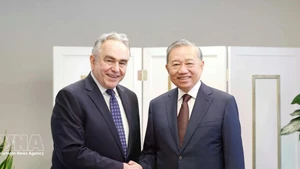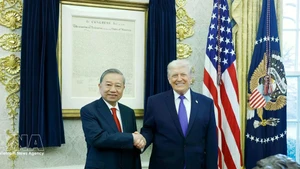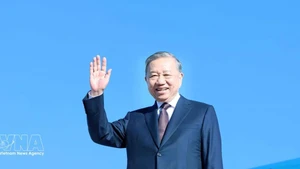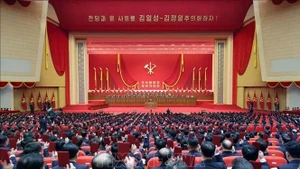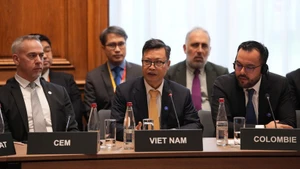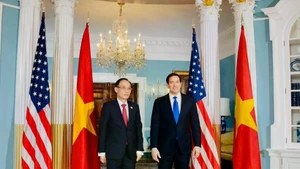Auditor General Tran Sy Thanh thanked the NAO, which plays the role of the General Secretary of the Asian Organisation of Supreme Audit Institutions (ASOSAI) in the 2018-2021 tenure, for its support and close coordination with Vietnam, helping Vietnam to successfully perform the role of ASOSAI President in the tenure.
Thanh briefed his Chinese counterpart on the socio-economic situation in Vietnam recently, as well as major events of the country, including the 13th National Party Congress, the first meeting of the National Assembly and anti-corruption efforts of Vietnam.
He said that the SAV, as a tool in supervising and governing the public finance of the country, has conducted auditing activities, providing auditing reports and relevant documents to NA agencies to assist them in supervising and issuing national fiscal policies.
Amid COVID-19 pandemic, the SAV has applied drastic and flexible measures in order to complete its auditing plan for 2021, while strengthening the application of information technology in auditing activities, management and operation. The SAV will start to implement auditing activities in the digital environment from 2022, he added.
In order to complete targets and plans in the future, the NA Standing Committee has adopted a Strategy for the State Audit of Vietnam Development to 2030, which defines three major pillars for the sector’s growth, including legal corridor, human resources and technology, Thanh said.
For his part, Chinese Auditor General Hou Kai said that China and Vietnam share many similarities in development, underlining that the SAV and the NAO are important traditional partners of each other, which was marked by a bilateral cooperation agreement signed in 2004.
Both sides have exerted efforts to promote cooperation in bilateral framework, while supporting each other in multilateral forums, he noted.
Regarding achievements that the audit sector of China has gained, Hou said that since 2012 when China decided to strengthen the leadership of the NAO over audit agencies in localities, the tasks of the NAO have become increasingly heavy and important.
In 2021, the NAO has been focusing on the major missions of monitoring economic activities, auditing financial activities and budget collection and spending, and expanding research on audit subjects, he told the event.
The two sides agreed to continue promoting the bilateral cooperation between the two State audit agencies by increasing the exchange of high-level delegations to share experience in public auditing and issues of mutual concern in suitable forms such as exchanging documents, handbooks, and organising online events amid the complicated development of the COVID-19 pandemic.
At the same time, they will consider cooperation topics in line with the implementation of sustainable development goals, especially in environmental protection and pandemic control. The two sides agreed to jointly hold a webinar on big data in public auditing this October.
Both sides concurred to continue supporting each other at multilateral forums of the ASOSAI and International Organisation of Supreme Audit Institutions (INTOSAI), while working closely together to organise the 15th ASOSAI Assembly as well as the 56th ASOSAI Governing Board Meeting.
The SAV pledged to support the NAO to extend its office term as the ASOSAI General Secretary in the 2021-2024 tenure.
The two State audit agencies also agreed to review their cooperation agreement with a view to making suitable adjustments and signing it again to suit the real development situation in the two countries, thus increasing their collaboration.
The memorandum of understanding on exchange and cooperation between the two agencies was signed in March 2004. It was resigned in October 2013 and extended in July 2019.
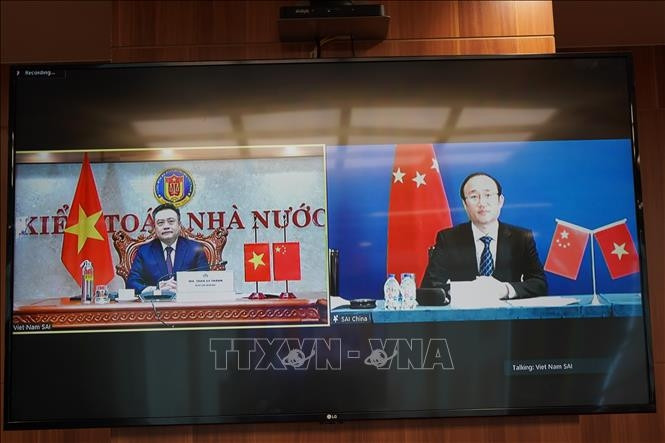
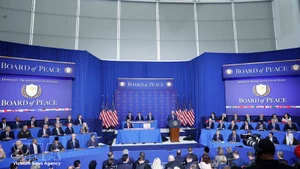
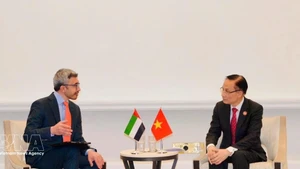
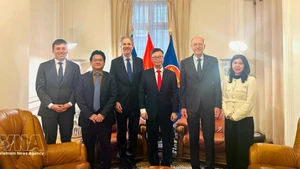
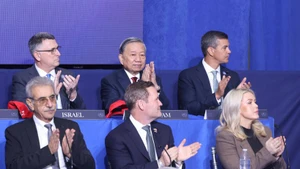
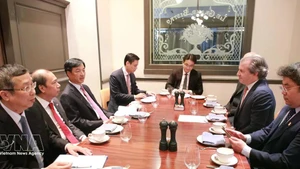
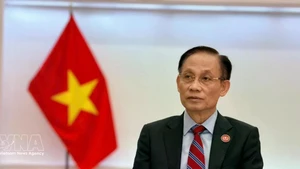
![[In pictures] Party General Secretary To Lam meets US President Donald Trump](https://en-cdn.nhandan.vn/images/dcd63867a0eed4c7753eb4bfb346593abc1ce710dfab8ad1b9aebd75ea6bf930b2ea13e4664779d689ba40aadd80f76d5d05d1208720fd7b0d811ace3a3297321c78cf738400e136e3f2d8790b24d43646e46edbe19517144a88f6ffb0d528f153574a7109328cc0949e4a4c16433c2ff751541639eefe4490518227264cbf8e/vna-potal-tong-bi-thu-to-lam-gap-tong-thong-hoa-ky-donald-trump-8599945.jpg.webp)
